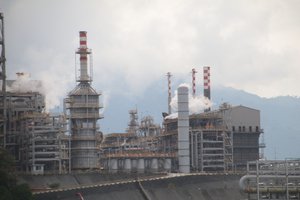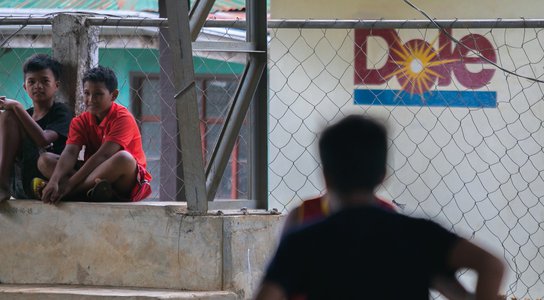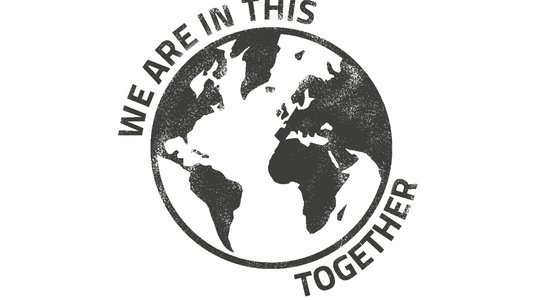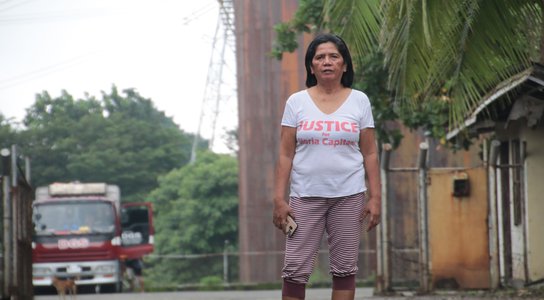
Limay coal-fired power plant, Philippines, one of the most polluting industries in the country
In the midst of turmoil and still battling COVID-19, it is easy to see the much-debated “green recovery” as the plan for the distant future – a plan to not only build a safer, healthier, more sustainable world but to repair the damage caused by indiscriminate exploitation.
But this campaign is crucially already ongoing, led at its frontline by land and environmental defenders and indigenous communities. If we are to look to a future with a green recovery, it means that we have to support them to start now, and take any opportunities we have to halt the creation of damaging systems that would halt this.
We are now at one such historical crossroad.
From 30th June, member of the states present in the 44th session of the UN Human Rights Council will debate how to support the Philippines, following a new report exposing the enormous extent of human rights abuses against indigenous groups and environmental defenders in the country.
This found that the government’s vague and violent discourse has undermined human rights, due process, the rule of law and accountability in the Philippines. It exposes how powerful business and political actors have consistently undermined efforts at land distribution and agrarian reform – putting indigenous communities at huge risk. It also exposes the criminalisation of activists through tactics like ‘red-tagging’ or labelling activists as ‘terrorists’ was highlighted as a “persistent and powerful threat to civil society and freedom of expression.”
Within this context, how countries at the UN Human Rights Council set their priorities in this debate will send a clear message on whether there truly is room for a sustainable vision of the future with human rights at its core. In other words: either the green recovery starts now, or it will be pushed further into the long grass until impossible.
The international community must take responsibility, recognising the scale of the crisis which the Philippines faces, and preparing a response. Meanwhile, the urgent call from civil society is that the Human Rights Council issue a resolution to mandate an independent inquiry into human rights abuses in the country – a call backed last week by 31 UN experts.
Are the leaders of a “green recovery” being protected?
The Philippines is a deadly place for those standing up to defend their land and environment from destruction at the hands of unrestrained agribusiness, mining and logging projects – with over 30 people killed in 2018 after standing up against harmful policies and extractive projects across the country.
The High Commissioner’s report documented “Shoot to kill” policing, rampant impunity, and rapidly shrinking civic space that hampers the efforts of those standing on the frontline in order to protect the environment.
These groups, many of them indigenous, face a rapid shortage of resources, while large extractive projects plunder with no consequences on their operations, often lacking proper consultation and licencing. Leon Dulce from the Filipino organisation Kalikasan People’s Network for the environment, explains how the silencing of environmental activists and indigenous communities has been escalating.
“The international community has long perceived the abuses in the Philippines as a problem solely related to the so-called ‘war against drugs’ but is so far beyond that. It is being used as a justification to perpetuate impunity, disrespect for the rights of the citizens working on different advocacies, working on different issues in the country".
“Eventually, this impunity is being utilised to attack activists, human rights and environmental defenders to prevent their work stopping destructive projects, as large-scale mines, coal-fired plants, mega-dams, plantations and other big business programs that are being pushed by the administration.”
Jaybee Garganera, the National Coordinator of environmental and human rights coalition Alyansa Tigil Mina (Alliance Against Mining – ATM) celebrates the clarity at the heart of the UN report – hoping that businesses including financial institutions take note:
“We are glad that the report has confirmed previously published reports on the human rights situation in the Philippines. We hope that, on their initiative, the private sector will respect and recognise that human rights [should be] an important element in their business model.”
“The international community has long perceived the abuses in the Philippines as a problem solely related to the so-called ‘war against drugs’ but is so far beyond that. It is being used as a justification to perpetuate impunity, disrespect for the rights of the citizens working on different advocacies, working on different issues in the country". - Leon Dulce, Kalikasan People’s Network for the environment
The threats facing those fighting climate breakdown during COVID
This condemning report by the UN comes against a backdrop of COVID-heightened threats against land and environmental defenders in the Philippines. Jaybee of ATM explains:
“Lockdown has brought double the difficulties for land rights and environment defenders here in the Philippines. The additional constraints have further reduced our freedoms and liberties, restricting our mobility and communications”.
“The most fearsome development is the newly passed Anti-Terrorism Act which relies on creates vague definitions and gives more problematic situations or grey areas, where the government can tag activists as terrorists. It reduces the operational space for rights defenders here in the Philippines.”
As defenders have publicly declared, the lockdown also means that medical and food supplies are not reaching more rural areas where indigenous communities reside and that they cannot transport to support them, due to serious threats to their lives. Those who face a lack of water – often one consequence of extractive projects – remain overexposed to infections.
Some private companies are even using lockdown as an exploitative opportunity to profit: with the spotlight turned away, local activists report that harmful extractive projects continue and even accelerate – despite outcry from communities suffering from the impact on their water and sanitation, air pollution and soil quality. By destroying nature, dismantling community resistance and silencing defenders, projects like these fly directly in the face of what we hope a greener future to look like.
“Lockdown has brought double the difficulties for land rights and environment defenders here in the Philippines. The additional constraints have further reduced our freedoms and liberties, restricting our mobility and communications”. - Jaybee Garganera, Alyansa Tigil Mina
The tipping point
Knowing all this, and given the global ambition for a greener, fairer world after COVID has passed, the UN Council finds itself at a crucial decision juncture.
As Leon Dulce, stresses: this is a crucial moment.
“At this point, the UN Council and the Human Rights Council should start to work towards a resolution that will initiate an investigation into the Philippines that will start a Commission of Inquiry that will systematically look at the cases of human rights violations and their trends.
“We urge Special Procedures in the United Nations human rights system to look into the nexus between human rights, business, environment and land and environmental defenders. We hope that it can help to explain what we represent, what we fight for, we hope that it could shed light over the precarious situation environmental defenders are in.
“Our work is contributing to clear air, clean water, to productive lands, to a lot of natural resources that benefit communities across the country and the world, but [it is] being monopolised and being plundered by big businesses and the government itself. Our work is crucial for the development of all, and should be supported and powered, instead of criminalised and harassed.”
This debate cements a path, either for a green recovery – one that protects those who are defending land and the environment, challenging destructive industries and calling for a better and fairer approach to extraction – or for a systemic failure that we cannot afford.
We vote to survive, and to build a path for a new beginning, in which defenders from the Philippines can not only live, but succeed in their fight for local and global sustainable environments.


